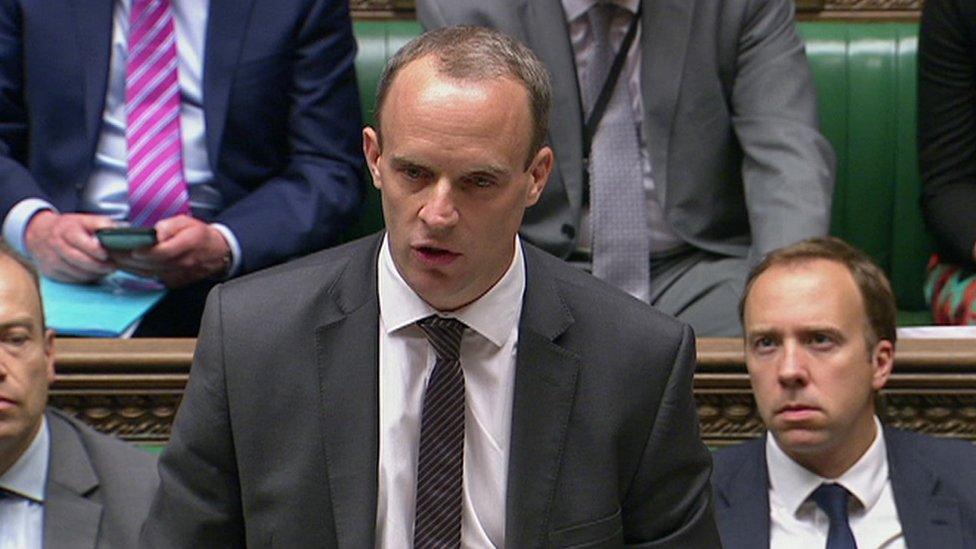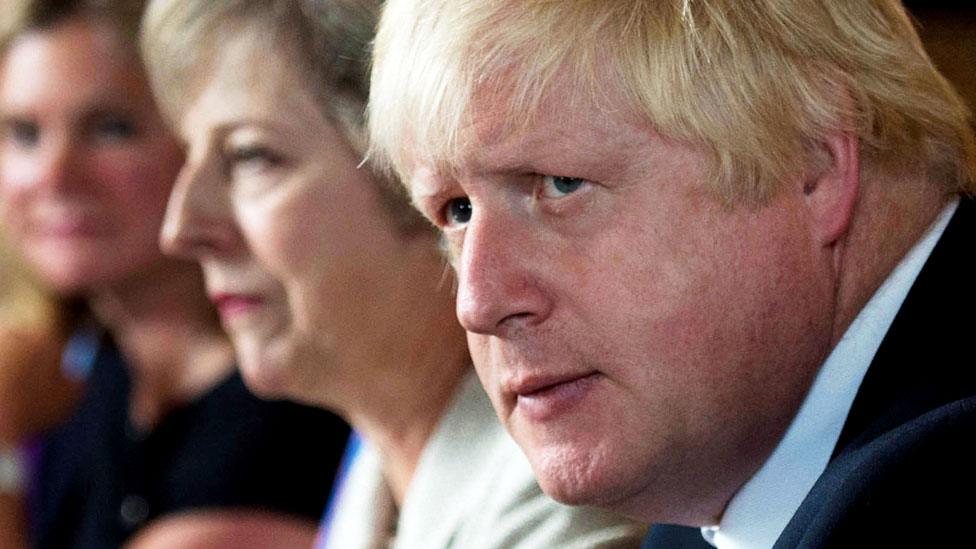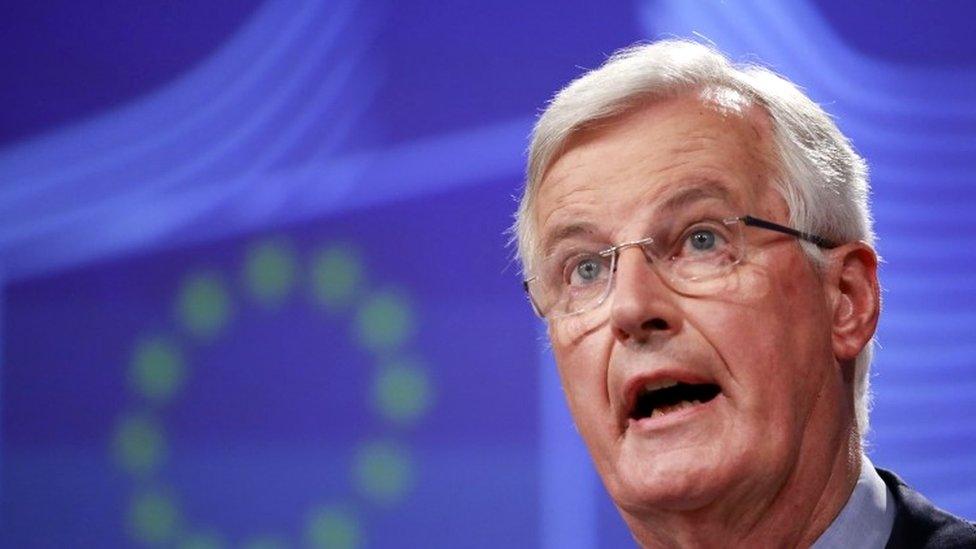Lord Mervyn King attacks 'incompetent' Brexit approach
- Published
- comments
Lord King laments Brexit 'incompetence'
Former Bank of England governor Lord King has blasted Brexit preparations as "incompetent".
The Brexit supporter said it "beggared belief" that the world's sixth-biggest economy should be talking of stockpiling food and medicines.
This left the government without a credible bargaining position, he said.
A spokesperson for the Department for Exiting the European Union (DExEU) said that getting a good deal with the EU was "by far, the most likely outcome".
Lord King said that "a government that cannot take action to prevent some of these catastrophic outcomes illustrates a whole lack of preparation".
"It doesn't tell us anything about whether the policy of staying in the EU is good or bad, it tells us everything about the incompetence of the preparation for it."
In a BBC interview to discuss the 10 years since the economic crisis - due to be aired next week - Lord King spent a significant amount of time saying the 11th hour preparation for a no-deal Brexit has undermined the government's negotiating position.
He added: "We haven't had a credible bargaining position, because we hadn't put in place measures where we could say to our colleagues in Europe, 'Look, we'd like a free-trade deal, we think that you would probably like one too, but if we can't agree, don't be under any misapprehension, we have put in place the measures that would enable us to leave without one.'"
'Significant progress'
In response, the government said it was "focused on negotiating a deal of unprecedented scope and ambition".
"We have already made significant progress," the DExEU spokesperson added. "The vast majority of the Withdrawal Agreement has now been agreed, and we are making further progress on the outstanding separation issues".
But Lord King predicts that we will find ourselves with what's been dubbed as Brino - Brexit in name only - which he said was the worst of all worlds. It's also a state of affairs that he fears could drag on for years.
"I think the biggest risk to the UK, and this is what worries me most, is that this issue isn't going to go away, you know the referendum hasn't decided it, because both camps feel that they haven't got what they wanted."
'Depressing' debate
Lord King expressed regret and surprise that it was more difficult for a single country to present a united front than the other 27 EU members.
He said: "They must have been really worried that they had 27 countries to try to corral, how could they have a united negotiating position, they were dealing with a country that was one country, made a clear decision, voted to leave, it knew what it wanted to do, how on earth could the EU manage to negotiate against this one decisive group on the other side of the Channel?
"Well, the reality's been completely the opposite. The EU has been united, has been clear, has been patient and it's the UK that's been divided without any clear strategy at all for how to get to where we want to go."
He also said he found the current level of debate around Brexit "depressing" and said it obscured the real challenges ahead.
"The biggest economic problems facing the UK are, we save too little, we haven't worked out how to save for retirement, the pension system is facing I think a real challenge, we haven't worked out how to save enough for the NHS and finance it, we haven't worked out how we're going to save enough to provide care for the elderly.
"These are the big economic challenges we face, but are they being discussed at present in an open way?
"No, because the political debate has been completely taken up by Brexit," he said. "It's a discussion where both sides seem to be throwing insults at each other."
Lord King might argue he is being much more even-handed, with stinging criticism for all involved.
His comments come as Manchester Mayor Andy Burnham calls for Brexit to be postponed, if a no-deal scenario seems likely.
In a speech on Wednesday, the former Labour minister will say that although "a price would undoubtedly be paid in terms of social cohesion," a suspension of the process would be necessary to avoid damaging jobs.
- Published4 September 2018

- Published3 September 2018

- Published2 September 2018

- Published26 December 2016
